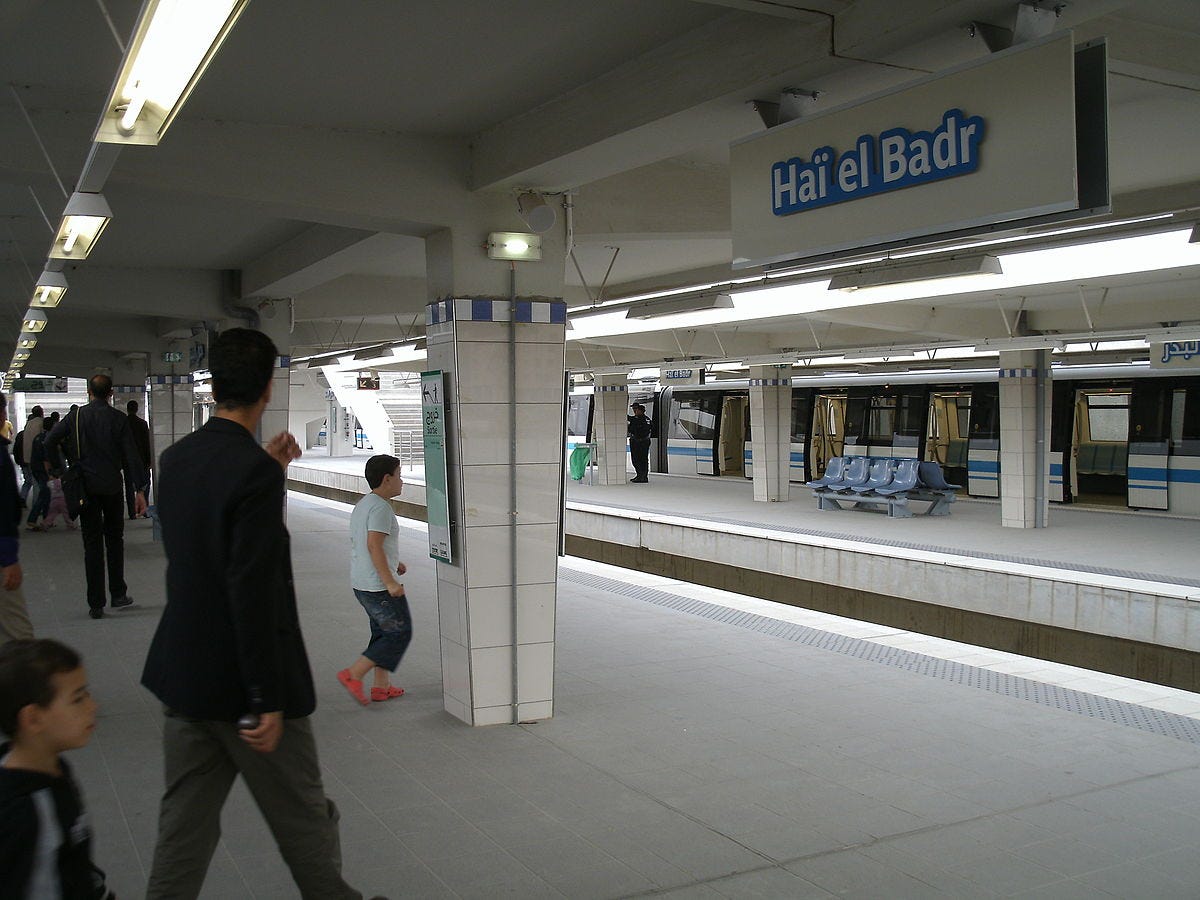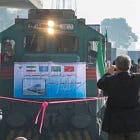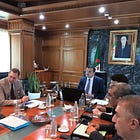Algeria’s New Metro Extension, China’s Wider Reach
Algeria's liberalisation efforts signal a growing alignment with BRICS.
On 15 July, the first joint Sino-Algerian infrastructure endeavour, the Algiers Metro extension, was inaugurated through collaboration with Chinese firms China Railway Construction Corporation (CRCC) and China Railway Signal & Communication Corporation (CRSC). The extension addresses long-standing urban mobility challenges for three million residents, delayed since 1982 due to political and economic constraints. Valued at approximately $1.2 billion and partly financed by Chinese loans, it underscores the Belt and Road Initiative (BRI)'s role in fostering connectivity and economic integration across MENA, and signals an increased BBRICS presence in the North African country.
Belt and Road Initiative: MENA Leg
Beijing's involvement in MENA transportation spans diverse projects under the BRI, which has channelled over $70 billion in construction contracts globally in 2024, with the Middle East emerging as a top recipient at $39 billion. Notable initiatives include high-speed railways in Saudi Arabia, such as the 2009 Mecca-Medina-Jeddah line built by CRCC, and port developments in Egypt and Oman, enhancing trade routes and energy security. These efforts align with China's strategic imperatives: securing energy imports and countering Western influence through 'infrastructure diplomacy', a priority made even more crucial in the aftermath of the Iran-Israel war.
This outreach was most recently exemplified by the inaugural direct freight train from Xi’an, China, arriving in Eslamshahr, Iran. The development marked a tangible deepening of China-Iran transport integration under the Belt and Road Initiative (BRI). Now, new reports indicate China's growing role in electrifying Iran's east-west railway corridor, a key segment of the BRI. Tehran has allegedly awarded a contract to a Chinese firm for the electrification of the Sarakhs-Razi line, aimed at boosting freight transit from China to Europe and upgrading the route to a double-track system for greater efficiency. This project, part of a transcontinental route operational since last month, strengthens Iran's position as a multimodal transport hub: facilitating the movement of bulk goods such as petrochemicals and reshaping Eurasian connectivity amid ongoing geopolitical tensions.
Algeria, Towards BRICS?
In Algeria, the new metro extension foreshadows intensified Chinese engagement. Following last month’s draft mining law passage, Algeria has seen an influx of new deals for mining projects; but despite opening up to foreign investment, Algiers appears to be maintaining sovereignty and limiting engagement with Western companies. Instead, it has welcomed talks with Kazakhstan, Russia, and Egypt.
The recent legislation targets vast reserves, including the Gara Djebilet iron ore deposit - a potential "lifeline" for China's steel industry. Projections suggest heightened investments in mining and linked transport, bolstering Algeria's GDP through exports while deepening economic ties.
Algeria's ongoing liberalisation, along with its deepening engagement with BRICS and affiliated institutions such as the New Development Bank, signals its growing alignment with the bloc. Although its previous bid for membership was unsuccessful, recent developments suggest Algeria may be edging closer to eventual inclusion. This trajectory positions China as a key player in the region, with the potential to reshape the geopolitical landscape of MENA in favour of greater multipolarity. In this context, the Algiers Metro stands as a microcosm of China's strategic inroads. It offers the promise of growth and reflects an ongoing Algerian commitment to sovereignty.





